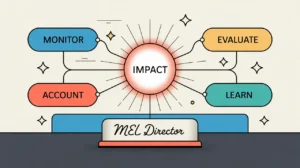What Does the Finance Assistant Role Involve?
A finance assistant is responsible for supporting the accurate and timely management of an organization’s financial transactions and records. This includes processing invoices, recording expenses, assisting with reconciliations, preparing basic financial reports, and ensuring proper documentation of financial activities. The role typically sits within the finance and operations function and works closely with accountants, finance managers, and program staff to maintain financial integrity. In both nonprofits and social enterprises, finance assistants provide essential support that ensures compliance with internal controls, donor requirements, and regulatory standards.
At What Level does this Role Operate?
Entry Level: This role typically reports to an accountant, finance manager, or director of finance. It focuses on transactional processing, data entry, and administrative financial tasks that underpin more complex financial operations.
Relative Employability: Finance assistant roles are consistently in demand across nonprofits, social enterprises, and corporate sectors. Every organization requires reliable financial support staff to maintain accurate records and support compliance.
Relative Pay Scale: Within nonprofits and social enterprises, finance assistant roles sit in entry-level pay bands, reflecting their focus on operational and administrative functions rather than strategic responsibilities.
What are the Key Responsibilities and Activities?
- Process invoices, payments, and expense reimbursements in line with financial policies
- Record financial transactions accurately and maintain organized records
- Assist with bank reconciliations and financial data verification
- Support the preparation of basic financial reports for internal and donor use
- Track petty cash, advances, and expense claims to ensure proper documentation
- Help maintain financial filing systems and archives, both digital and physical
- Communicate with vendors, partners, and staff regarding payment and documentation requirements
- Support audits by providing requested financial documentation and transaction records
- Coordinate with program teams to ensure financial data is complete and timely
What Core Competencies and Qualifications are Needed?
Required Qualifications and Experience
The following reflect common qualifications and experience expected for this role, while recognizing that pathways may vary by context, organization, and region.
- Relevant academic background in accounting, finance, business administration, or a related field, or equivalent professional experience
- Familiarity with basic accounting principles and financial record keeping
- Proficiency with spreadsheet software and financial systems
- Strong organizational skills and attention to detail
- Experience in administrative or financial support roles (including internships or volunteer work) is often preferred
Key Competencies
- Transaction processing and financial documentation
- Data entry accuracy and reconciliation
- Basic financial reporting support
- Communication with internal and external stakeholders
- Record keeping and audit preparation
- Compliance with financial procedures and policies
How are AI and Automation Shaping this Role?
An AI-native finance assistant will look to AI and automation to improve accuracy, speed, and consistency in financial processes. They can use AI tools to automate data entry, detect anomalies in transactions, and flag missing documentation. Automation can streamline invoice processing, expense reporting, and reconciliation workflows, reducing errors and administrative workload. By using these technologies effectively, finance assistants can focus on maintaining data quality, supporting audits, and ensuring that financial operations run smoothly.
What Career Pathways and Transferable Skills are Associated with this Role?
Finance assistant roles can lead to positions such as accountant, audit associate, finance officer, or budget analyst. The skills developed in transaction processing, financial documentation, and reporting are highly transferable across nonprofits, social enterprises, corporate finance departments, and public institutions. This role provides a strong foundation for progressing into mid-level finance roles that involve greater analytical and strategic responsibilities.







